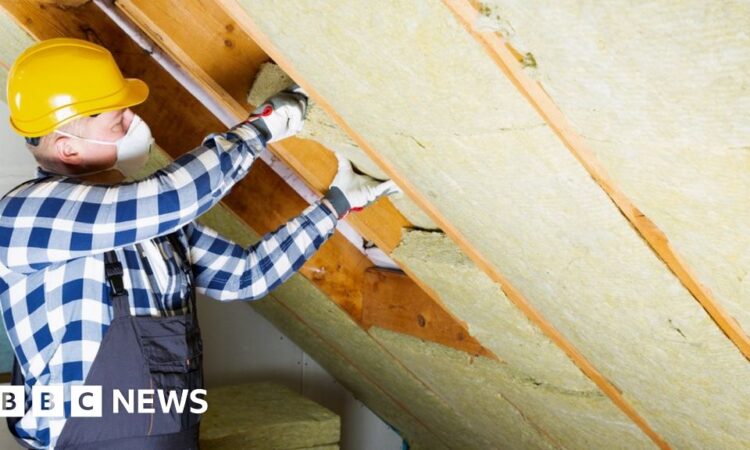
- By Chas Geiger
- Political reporter
Image source, Getty Images
Labour has rejected as “bogus” an analysis by government officials that its plan to improve home energy efficiency would cost £12-15bn a year.
The party has said the measures, part of a wider £28bn green investment plan, would be capped at £6bn a year.
But Chancellor Jeremy Hunt told the BBC the analysis showed Labour’s proposals were likely to cost “a lot more”.
Ahead of a general election, Tory ministers have repeatedly targeted Labour’s spending pledges.
The Conservatives say this would force up taxes and hit economic growth.
Mr Hunt said the Conservatives had created 800 jobs a day since 2010 and the UK economy had recovered from the Covid pandemic “far better than most people predicted”.
A Labour “borrowing splurge”, he argued, would put that at risk with £28bn a year equivalent to four pence on income tax, and mean there was less money for the NHS and other public services.
Labour, which says its measures would reduce household energy bills, said the £12-15bn figure was “ludicrous and uses bogus assumptions”.
“They have costed someone else’s policy,” a spokesperson added.
The party said it rejected an assumption that all improvements would be government-funded, adding its proposals would involve a mixture of grants for low-income households and low-interest loans for others.
It stressed that a description of the plan as an “uncapped, fully Exchequer-funded, undifferentiated model” did not fit with its policy.
Labour also emphasised that its “National Warm Homes Plan” would be a voluntary scheme, and that no household would be forced to participate.
However, the document’s findings were seized on by Rishi Sunak in his exchanges with Sir Keir Starmer during Prime Minister’s Questions.
The analysis found around £2bn a year was “currently committed in the next Parliament for home energy efficiency, heat decarbonisation and public sector decarbonisation combined”.
This is by no means the first time an opposition has clashed with the government over its use of officially-produced statistics in an election year.
Catherine Haddon, from the Institute for Government think tank, said such costings were a “long-standing convention”, but also a “political tool”.
“Costing opposition policies has happened since at least the 1950s. It’s very much a political tool.
“The Treasury only do the calculations based on assumptions about the policy which have to be given to them by ministers or special advisers,” she wrote on X.
In another post on X, former Treasury permanent secretary Lord Macpherson suggested these costings should be ignored.
“Over the next 9 months, we will have to [tolerate] many an ‘official Treasury’ costing of Opposition policy.
“Since time immemorial, whatever the party in power, these costings have had little if any credibility. Political advisers determine the assumptions. #rubbishinrubbishout,” he said.
A government spokesperson said: “The costing of opposition policies is a long-standing exercise governed by a set of guidelines in place over successive governments.”






